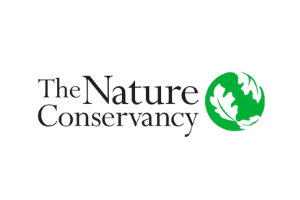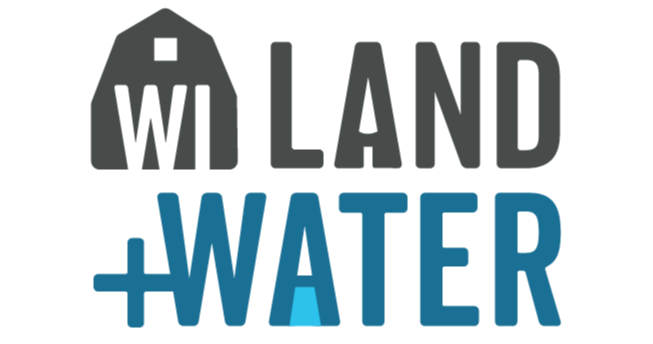Clean Water Initiative


.png?width=500&height=250&name=DBA%20(1).png)

Clean Water Initiative
The Dairy Business Association is partnering with Clean Wisconsin, The Nature Conservancy and Wisconsin Land and Water Conservation Association (WI Land+Water) because it’s time to rethink how we protect our water and support our farms. If not always on the same side of policy debates, our groups have had a long history of advocating for these issues. Wisconsin has made progress, but not enough. We have come together to find common ground and to push for bold changes from state decision-makers — changes that will significantly accelerate improvements to protect both our water resources and our farms. We cannot address clean water or the future of farming in Wisconsin as standalone issues. They are challenges that must be met together if we are to have a future where our state has clean water and a resilient agricultural community.
Our vision
Clean water and resilient farms for Wisconsin
Our mission
Break down barriers and bring people together to protect and improve water quality, the environment and the future of agriculture
2025 - 2027 Budget Blueprint
To address Wisconsin’s growing water quality and agricultural challenges, bold action is necessary. For the 2025-27 State Biennial Budget, we call for significant financial investments to provide clean drinking water for Wisconsinites and appropriate incentives for farmers to protect water quality.
Support and Enhance Current Conservation Efforts
County conservation staffing: Support Wisconsin farmers and landowners by allocating $20.2 million in annual base funding, as provided in s. 92.14(6)(b), for county land and water conservation department technical professionals.
Investment: $20.2 million annually ongoing (an $11.3 million increase over current base funding levels)
Nitrate contamination prevention: Expand the Nitrogen Optimization Pilot Program to better develop nitrogen management techniques to reduce nitrate contamination in drinking water in vulnerable parts of the state.
Investment: $1.25 million annually ($250,000 increase over current funding levels)
Promoting cover crops: Increase funding to the Cover Crop Insurance Premium Rebate Program, incentivizing the planting of cover crops to improve water quality and promote soil health.
Investment: $1 million annually ($200,000 increase over current funding levels)
DNR CAFO Program Staffing: Provide 6 new positions at the Department of Natural Resources to improve efficiency and operations in reviewing and processing CAFO permit applications.
New positions should be provided specifically as follows:
• 1 CAFO Review Engineer | Responsible for all plans and specs review and approval of new waste storage and waste transfer facilities.
• 2 CAFO Nutrient Management Plan (NMP) Reviewers | Responsible for completing NMP assessments that are submitted by CAFO farms.
• 1 CAFO Hydrogeologist Reviewer | Responsible for review of new and reissuance requests to assess and review potential water quality issues with respect to the varying soil and water conditions across the state.
• 2 Agricultural Runoff Specialists | Responsible for communication with farms, review and drafting of individual WPDES permits, scheduling public comment and public hearings for permit issuance, reissuance or modifications. They are also part of the DNR spill response team and communication with the public with regards to the WPDES permitting process or for questions about specific CAFOs.
Ensuring Clean Drinking Water
Well contamination: Offer households with contaminated wells access to funds for well replacement or whole home filtration. Increase investment and enact statutory programmatic changes to the Well Compensation Program to expand eligibility requirements and provide greater access to the program.
Investment: $5 million annually
Well testing: Provide grants for county-led programs or direct state assistance that prioritizes testing for low-income households and high-risk areas.
Investment: $2.5 million annually
Fostering Innovation
Producer-led watershed protection grants: Increase support for the Producer-Led Watershed Grant Program.
Investment: $1.25 million annually ($250,000 increase over current funding levels)
Enhancing managed grazing: Enhance managed grazing livestock production systems by creating a transition to grazing pilot program to assist farmers who intend to strategically transition row crop fields to pasture or perennial forage production systems for livestock.
Investment: $500,000 annually
Strengthen Wisconsin's Agricultural and Environmental Systems
With innovation, improvements to key processes, and more funding for successful programs, our farms and our ecosystems can thrive together. This means increased investment in proven, core conservation programs, like county conservation departments and producer-led watershed groups, along with developing more effective and efficient permitting systems. Innovation should be encouraged through regulatory clarity and increased funding for new technologies that reduce agriculture’s environmental impact. Through these combined efforts, Wisconsin can create a more resilient agricultural sector while safeguarding its natural resources.
Ensuring clean drinking water for all Wisconsin residents
While some initial steps have been taken, substantial investment is needed to guarantee clean, safe drinking water for everyone in Wisconsin, especially our rural communities. Rural Wisconsinites face enormous challenges due to private well contamination, and shrinking municipal water utility budgets. To address these challenges, we should expand access to the well compensation program and allocate state resources for comprehensive testing of private wells and enhanced groundwater mapping. Understanding groundwater movement and sources of contamination will inform land and crop management decisions, improve septic system management, and protect our critical water resources. Achieving this goal requires significant financial investment, and all funding options, both existing and new, must be considered to ensure long-term water security for Wisconsin's residents.
Preserve Wisconsin’s Rural Heritage
Wisconsin’s rural communities are the foundation of our state’s cultural and economic identity. But this landscape is experiencing enormous changes due to urbanization, farm consolidation, environmental and climate change concerns, often leading to depopulation, economic instability and other significant challenges. It is crucial that we strengthen rural economies, increase land access, and address environmental health issues. Expanding land access, supporting beginning and next-generation farmers, and promoting adoption of sustainable farming practices and climate-friendly technologies will help our rural communities once again thrive, preserving their cultural heritage and the natural resources we all rely on.
